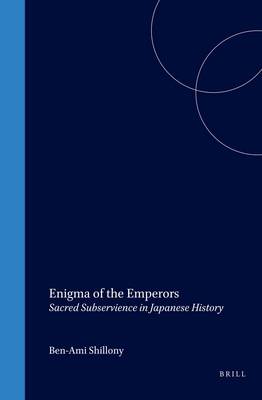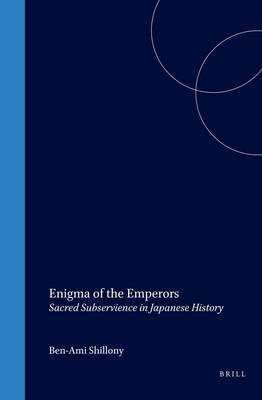
- Afhalen na 1 uur in een winkel met voorraad
- Gratis thuislevering in België vanaf € 30
- Ruim aanbod met 7 miljoen producten
- Afhalen na 1 uur in een winkel met voorraad
- Gratis thuislevering in België vanaf € 30
- Ruim aanbod met 7 miljoen producten
Zoeken
€ 145,45
+ 290 punten
Omschrijving
This important new and original study on the institution of the Japanese emperors, from their mythological beginnings to the present day, focuses on the enigma of the institution itself, namely, the extraordinary continuity of the Japanese dynasty, which is unknown anywhere else in the world, yet which is now at risk on account of more recent laws of succession. The prisms through which this remarkable achievement is examined are the notions of divinity, gender and subservience. The volume is divided into nine sections: Strange Survival; The Feminine Beginnings of the Japanese Monarchy; Empresses and Consorts; Subservience as Power; Rising Fortunes in an Era of Peace; Meiji: the National Father Figure; The Elusive Divinity of the Modern Emperors; Return to Sacred Subservience; Continuity in Danger. Based on earlier research first published in Japanese (Haha Naru Tenno), Enigma of the Emperors adds significantly to the existing corpus of work on this subject, addressing many traditional preconceptions and misconceptions along the way. Accordingly, it will undoubtedly be welcomed within scholarly circles, as well as being of particular interest to a wider readership, not least because of its relevance in the context of the major contemporary issues surrounding the future of the dynasty in the twenty-first century.
Specificaties
Betrokkenen
- Auteur(s):
- Uitgeverij:
Inhoud
- Aantal bladzijden:
- 320
- Taal:
- Engels
Eigenschappen
- Productcode (EAN):
- 9781901903348
- Verschijningsdatum:
- 1/05/2003
- Uitvoering:
- Hardcover
- Formaat:
- Genaaid
- Afmetingen:
- 155 mm x 235 mm
- Gewicht:
- 631 g

Alleen bij Standaard Boekhandel
+ 290 punten op je klantenkaart van Standaard Boekhandel
Beoordelingen
We publiceren alleen reviews die voldoen aan de voorwaarden voor reviews. Bekijk onze voorwaarden voor reviews.











